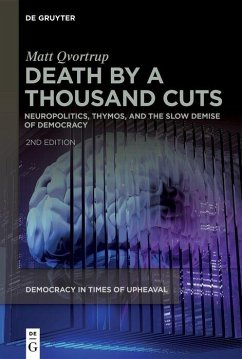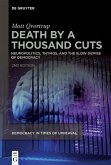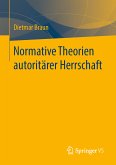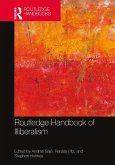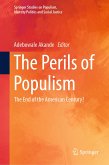According to Plato, democracies die when people get angry. Resentment causes them to vote for demagogues. Recently, democratically elected politicians have used crises as a pretext for dismantling democracy, following a pattern we have seen since the dawn of civilization. Why do people fall for the lure of dictatorships? And what can we learn from the cause and effects of dictatorships to understand why democracies die? In this new edition of Matt Qvortrup's acclaimed monograph
Death By A Thousand Cuts, the author shows how neuroscience can help us understand why people willingly give up their democratic rights or are unwillingly forced to do so.
Death by a Thousand Cuts: Neuropolitics, Thymos, and the Slow Demise of Democracy is written in an accessible style with vignettes and new empirical data to provide historical context and neurological evidence on a much-discussed topic: the threat of democracy. This book will help readers who are concerned about the longevity of democracy understand when and why democracy is in danger of collapsing and alert them to the warning signs of its demise.
Matt Qvortrup is Professor of Political Science at
Coventry University, and holds a visiting chair of law at the
Australian National University. Since 2016, he has been Joint Editor of the top-academic journal
European Political Science Review.
Dieser Download kann aus rechtlichen Gründen nur mit Rechnungsadresse in A, B, BG, CY, CZ, D, DK, EW, E, FIN, F, GR, HR, H, IRL, I, LT, L, LR, M, NL, PL, P, R, S, SLO, SK ausgeliefert werden.
Hinweis: Dieser Artikel kann nur an eine deutsche Lieferadresse ausgeliefert werden.

